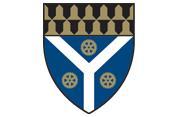Yale Summer Research Program Receives Renewed NSF Funding

Yale University has been awarded a three-year Research Experience for Undergraduates Site (REU) grant from the National Science Foundation. The grant—which Yale was also awarded in 2012—provides funding for undergraduate scientists to conduct interdisciplinary summer research under the mentorship of faculty affiliated with the Raymond and Beverly Sackler Institute for Biological, Physical, and Engineering Sciences.
““Receiving NSF support for another three years confirms the success of Yale’s REU program, as only about thirty percent of REU Site programs ultimately receive a second round of funding,” said Corey O’Hern, associate professor of mechanical engineering & materials science, physics, & applied physics, and director of undergraduate programs at the Sackler Institute. “Students from around the country who hope to pursue careers in science not only complete an intensive research experience, but they’re able to do it at Yale in a setting that explores the interface of physics, engineering, and biology.”
Each summer, the REU fellowship provides eight undergraduate researchers with free room and board, funds for travel expenses, and a $5,000 stipend. Largely targeted for students interested in careers in the sciences but whose colleges do not have many research opportunities, Yale’s REU fellows also are exposed to a variety of workshops and panels on topics as varied as laboratory procedures, techniques for documenting results, delivering compelling presentations, scientific ethics, and the process of applying to graduate school. At the end of the summer, the REU Fellows present their research during a final symposium held in conjunction with other summer Yale research programs.
A key achievement of the Yale program is the number of Fellows who continue to participate in scientific discovery either by publishing their research or by choosing to attend graduate school; according to O’Hern, the average publication rate in the program was roughly one paper per student, and 72 percent of fellows are currently pursuing or plan to pursue an M.D., Ph.D. or M.D./Ph.D. joint program.
The program for 2015 will run from May 31 to Aug. 7. Participating SEAS faculty include Jöerg Bewersdorf, Stuart Campbell, Eric Dufresne, Jay Humphrey, Kathryn Miller-Jensen, Corey O’Hern, Chinedum Osuji, Nicholas Oullette, Corey Wilson, and Steven Zucker.
Finally, as the Yale Daily News notes, alumni of the REU program said “it gave them an experience significantly different than what they would have gotten at their smaller schools”:
Daniel Chawla, a senior at The College of New Jersey who participated in the program this past summer working on simulating chemotaxis in E. coli, said this was his first experience conducting research, and the experience was crucial to envisioning a career for himself in the sciences.…
Christine Parsons, a senior at Bowdoin College, participated in REU two summers ago, but came back the following year to continue research in the lab in which she had been working…. Parsons said she found that the opportunity to publicly present her research at the end of the program taught her how to better communicate complex scientific concepts.
Students interviewed who had participated in the program said it gave them an experience significantly different than what they would have gotten at their smaller schools.
Larisa Gearheart, a junior at Mills College who participated in the program last summer said she still communicates with her mentor from the summer and was happy to hear that the NSF grant is to be renewed.
“It’s so amazing, especially in the political climate where so many things are being cut, to see that we are focusing on areas like this where we can develop scientists — we can develop the next generation,” Gearheart said. “Even with everything that has been happening with politics lately, it is nice to see we have something great like this that will persist.
Founded in 2008, Yale’s Raymond and Beverly Sackler Institute for Biological, Physical, and Engineering Sciences enables transformative and collaborative research and teaching initiatives. These initiatives were established to prepare a new generation of scientists who are skilled at applying physical and engineering approaches to biological research, and who are also sufficiently sophisticated in their biological training that they can readily identify and tackle cutting-edge problems in the life sciences.

